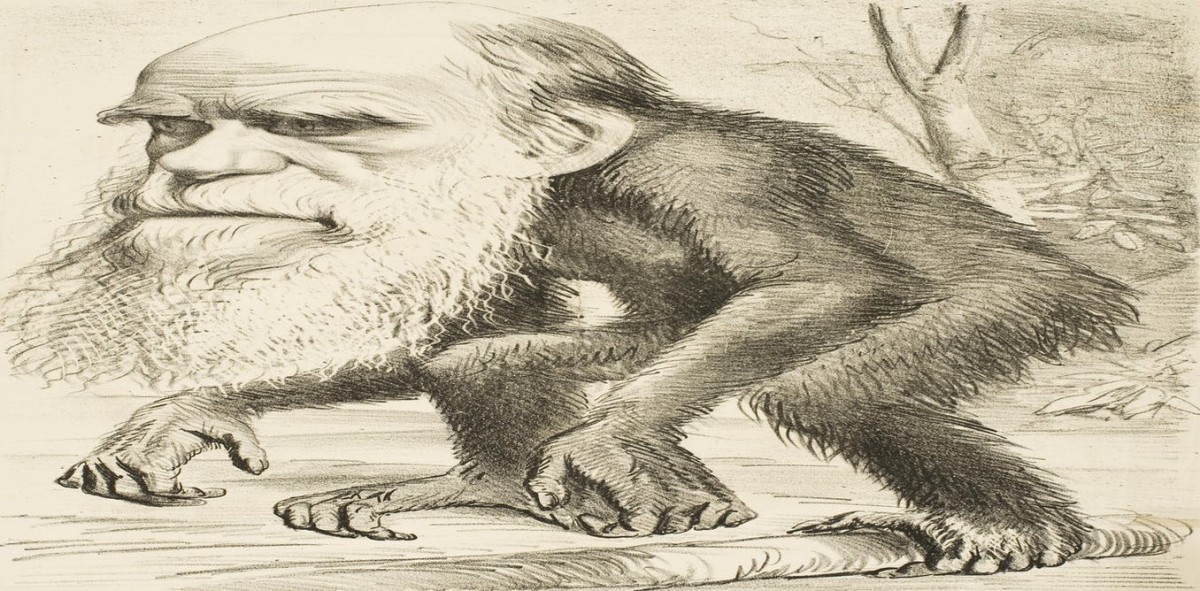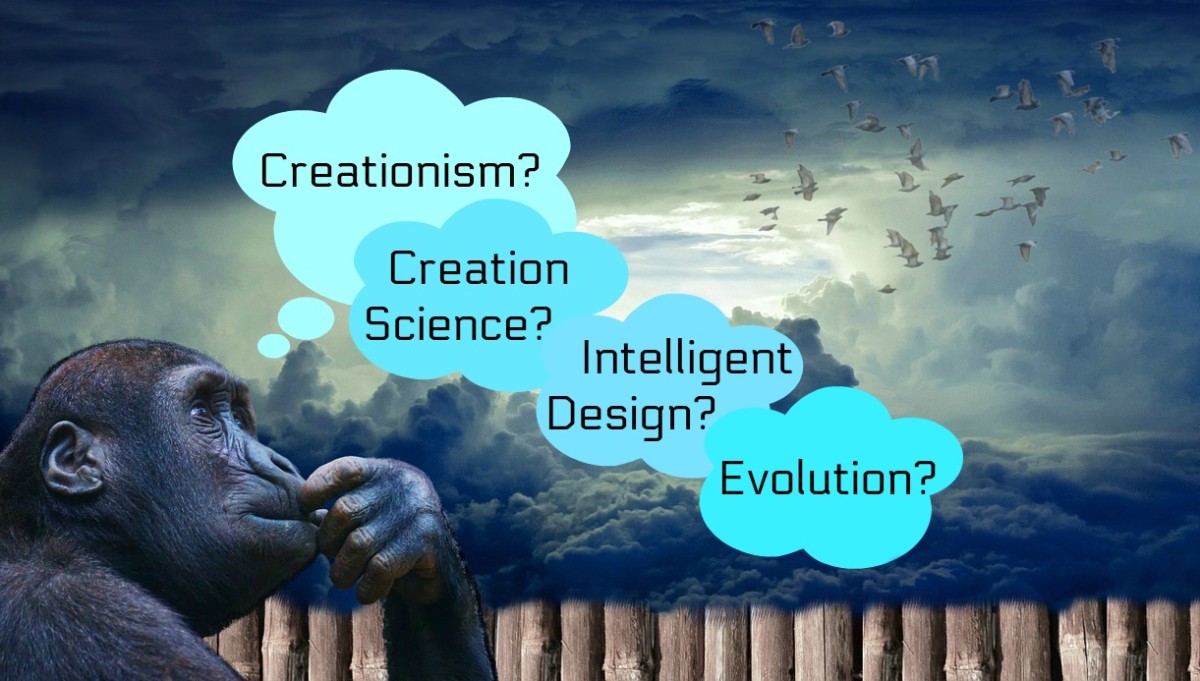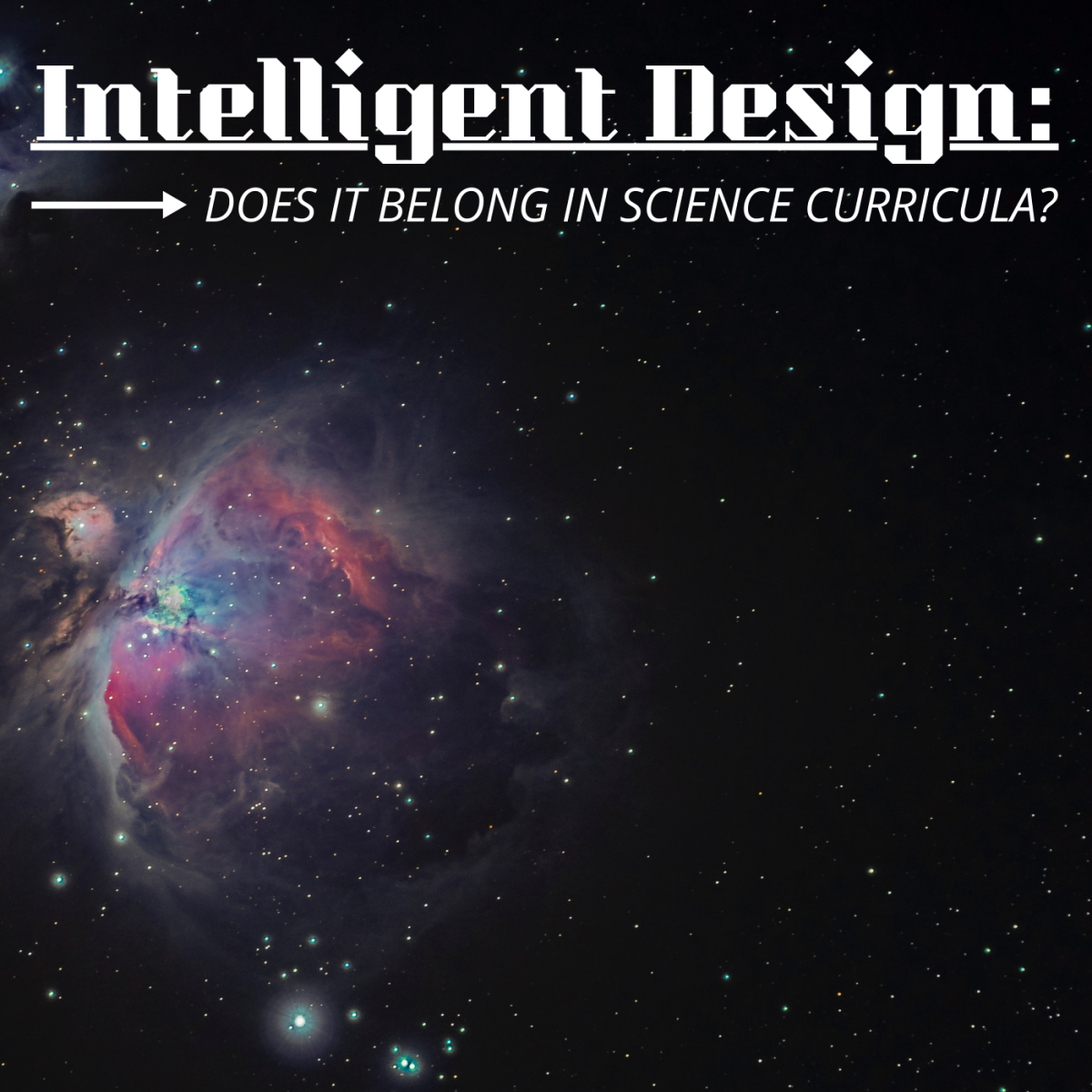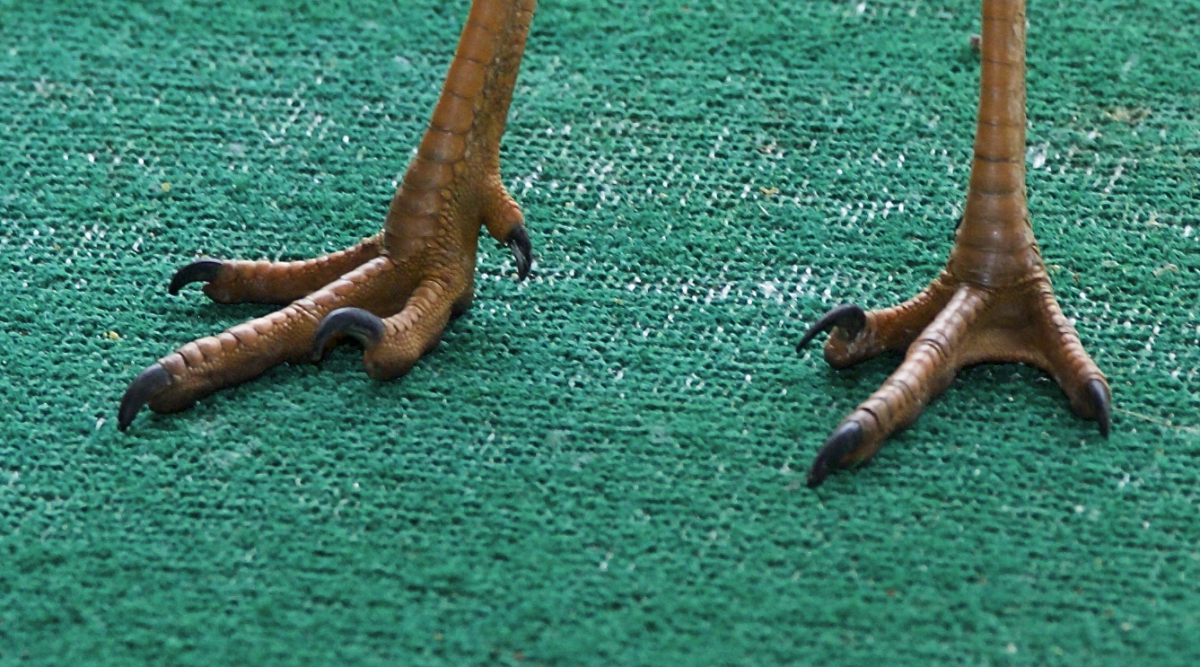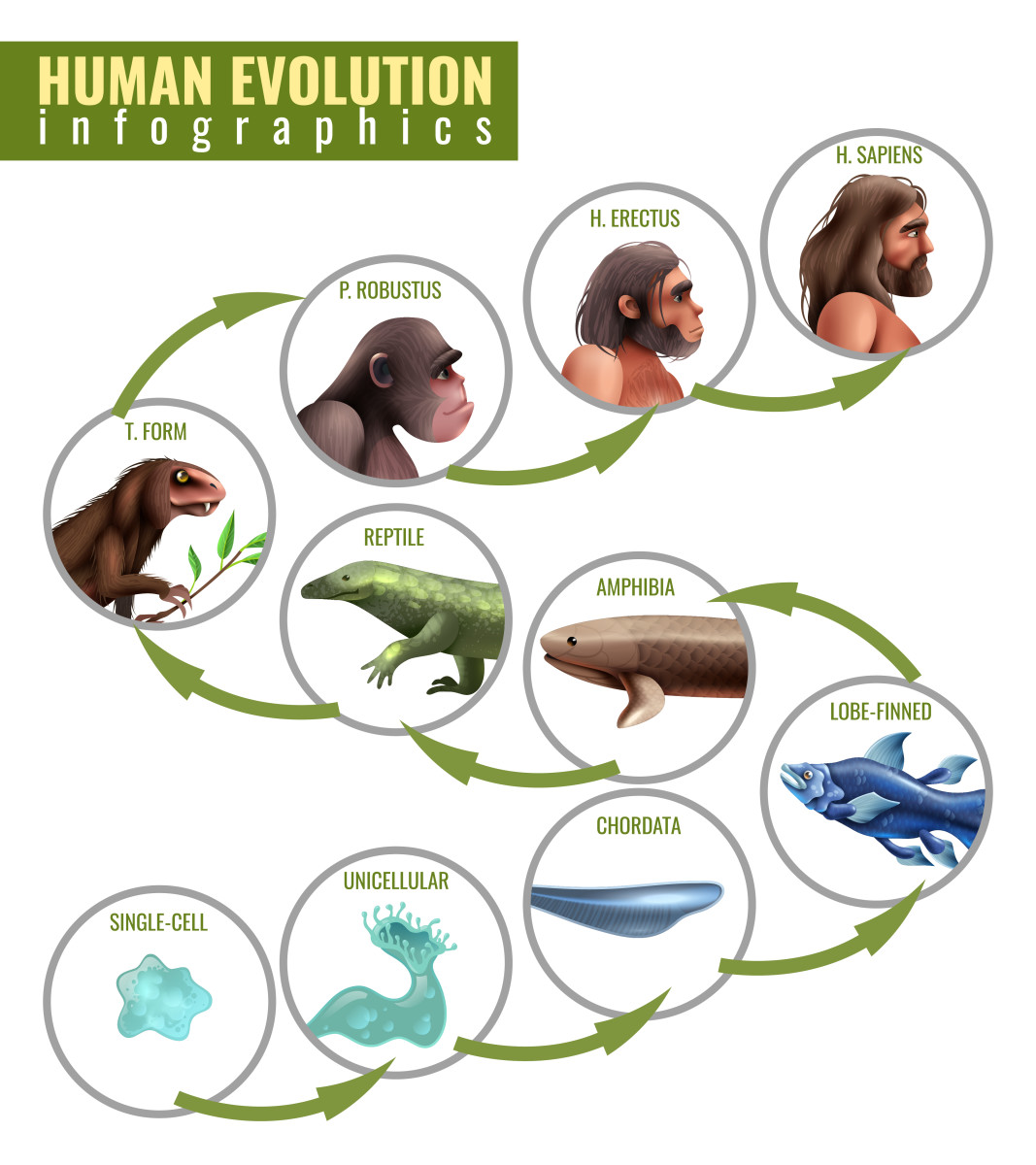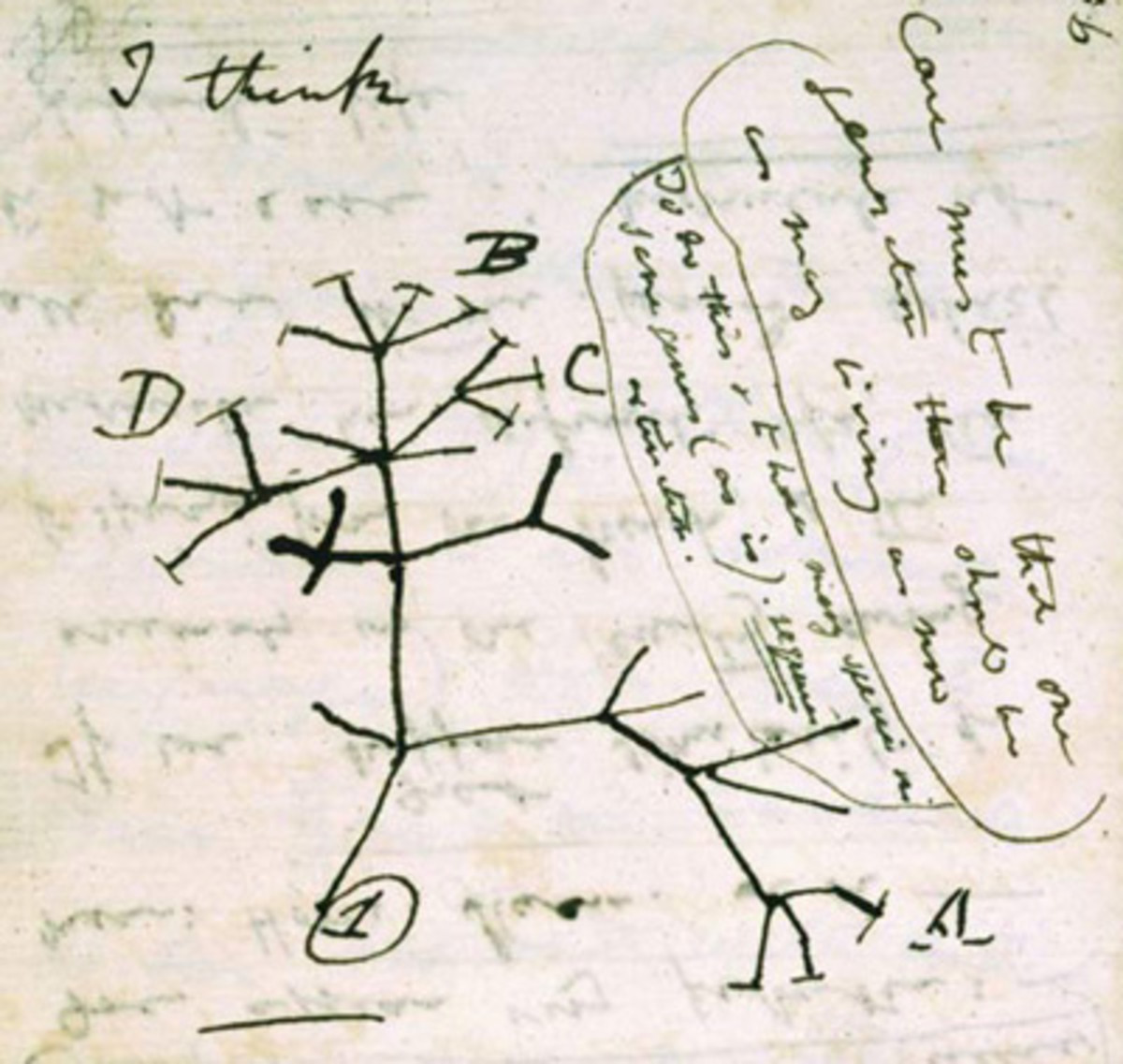Religion Has Nothing to Do With It: Darwin and the Questionable Science of Evolution
There are two accepted theories that explain the origin of life on planet Earth: The theory of the Common Ancestor, put forth by Charles Darwin in his book On the Origin of Species, which stated that through the process of abiogenesis (the creation of life from non-living matter), the first organism on Earth was created and all creatures that now exist on Earth “evolved” from this first organism; and Creationism, the theory that all life was created by a "Higher Being" using “Intelligent Design."
Like most people, I was raised on a strict diet of Evolutionary Science, ridiculing Creationism at every opportunity. And then it hit me.
I was with my kids in the dinosaur exhibit at the Denver Museum of Nature and Science (a frequent trip and a fantastic exhibit). The Early Life section of the exhibit is on a platform above the rest of the exhibit; it's a little spooky up there in the haze of a fake sunset over a fake beach, the sound of insects buzzing and chirping in the background, life-size models of prehistoric insects dangling from the ceiling on minute wires. It made me think how scary it would be if those dragonflies were real. Later that summer, at a truck stop in the middle of Kansas. There was a dragonfly on the ground; something was wrong with its wing and it couldn't fly, so I picked it up to show my son. It was huge, at least 4 inches long. I held it for a few minutes and then that little twerp BIT ME. And it broke the skin. And it HURT. And I thought, This creature, if it were the size of the model in the museum, could kill and eat people. So … why wouldn't it be the size of the dragonfly in the museum? Why would Evolution make them weaker and easier for us to kill? And then: Why wouldn't dinosaurs come back? They're far superior to most mammals.
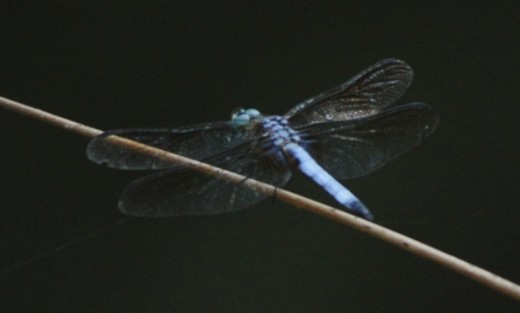
"Those who have conspired in this creation of a scientific orthodoxy that mere mortals question at their peril should reflect on the fact that science itself is heresy. Or it certainly starts as heresy. In the words of Isaac Asimov, ‘Some of the greatest names in science have been… heretics. Startling scientific advances usually begin as heresies.’ That science and its adherents now contribute to the policing and punishment of heresy represents an abandonment of the openness to rebuke and falsification that makes science such an important endeavour in the first place." Brendan O’Neill, Editor of Spiked, addressing the Queen's College, Oxford, 10 May 2018
So I did some research and found out I'm not the only one questioning the science taught in school. But that's not saying much. There are currently 6 Kingdoms to classify all life on Earth; when I was in school, there were only two. Science itself is constantly evolving.
But recently, a vocal minority of scientists started questioning the science behind Evolution. Some of them, not surprisingly, hold a strong belief that a higher being was responsible for life on Earth; although they believe in and support Evolution, their spiritual beliefs leave room for a belief in “Intelligent Design.” But surprisingly, even some atheists and agnostics are starting to question Darwin’s theories and are coming to the conclusion that he was wrong.
It is important to reiterate that although these scientists do not agree with Darwin, they are not necessarily proponents of Intelligent Design. They simply disagree with the science behind Darwin’s theories.
For example, there is evidence that carbon dating may be unreliable, which would mean that fossil dating would be inaccurate. This could mean that the age of a group of fossils could be either much older or much younger than originally thought. According to Ashton, “[r]ocks are dated by very accurately measuring the concentration of the various isotopes of radioactive elements they contain.” (128) However, this only works if the decay is constant. Researchers at Purdue and Stanford Universities have found that the decay rates for certain isotopes were varied. They were surprised by the data because they had assumed that the isotopes decayed at a constant rate. Researchers suspect that the sun may have more of an effect on decay rates than previously thought. There is also new evidence that particles released before and during solar flares may have an effect on the decay rate. (Stober)
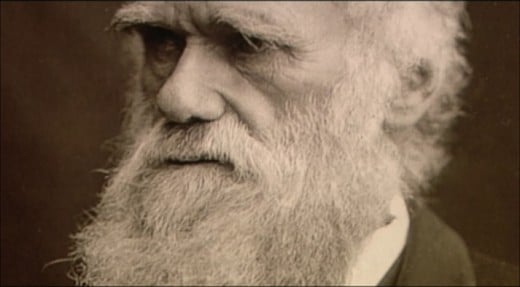
These scientists are also perplexed by the idea of an organism’s ability, for example, to “grow” a new limb, or “evolve” lungs from gill sacks. The amount of new genetic material needed to create something as simple as a flagellum on a bacterium is staggering. Kohlmayer argues that:
"Under Darwinism, a complex structure like this would have to emerge incrementally by adding one part to another until the whole motor was finally built. But given the motor’s complexity and the fact that its builder is blind chance, the process would have to take a very, very long time. During all this time, the existing parts would serve no function or purpose, i.e., during the “assembly phase” the existing parts would be useless."
Therefore, the probability of “growing” an arm or a leg would be unfathomable.
The human eye is another example of an existing complex organ that many believe could not be formed by chance. There are many small parts, each with a special job, that make it work. The iris controls the amount of light coming into the eye. The rods, which are located at the back of the eye, determine how well one can see in bright or dim light. The numerous cones, also located at the back of the eye, are divided into red-sensitive, green-sensitive, and blue-sensitive cones; cones are theorized to be the reason we can see in color. Additionally, to add to all the confusion, although we can physiologically “see” things, it is our perception that allows us to identify and remember those things we are seeing (e.g., a “dog”, rather than simply light reflecting off a mass of “fur” with a slobbery “tongue” and a wagging “tail”). (Rea 92-99)
They also assert that there is little evidence of evolution (i.e., the act of evolving), in the fossil record. Archeologists may find fish in one strata; in a neighboring strata, amphibians appear with no evidence of the amphibians having evolved from fish, such as the complex addition of arms and legs. (Ashton 70) There is also no current evidence that any species are currently in the process of evolution. There is evidence of organisms changing size or color, but no evidence exists of organisms having evolved, for example, into other organisms; such evolution would be necessary for Darwin’s Theory to be true.
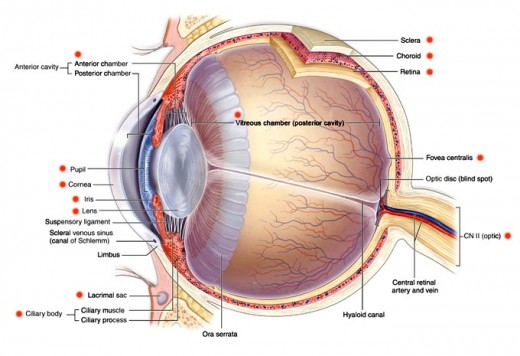
Scientists take issue most, however, with the mere improbability of the randomness of Evolution occurring at all. Dr. John R. Baumgardner explains just how unlikely this random act would be: “For a relatively short protein consisting of a chain of 200 amino acids, the number of random trials needed for a reasonable likelihood of hitting a useful sequence is then on the order of 20100 (100 amino acid sites with 20 possible candidates at each site), or about 10130 trials. This is a hundred billion billion times the upper bound we computed for the total number of molecules ever to exist in the history of the cosmos!!” (Ashton 156) Not to mention that DNA requires peptides and amino acids to be in specific places, not unlike computer codes. If something is in the wrong place, as with software, it will not work. (Meyer)
There are many new and exciting scientific theories in existence today that are worth closer examination, and may support these dissenters’ doubts. There is the theory of panspermia, or the theory that life came from outer space. To say it came from space does not mean that gray men in spaceships dropped off their kids here on Earth (although that is another theory). It means existing life may have piggybacked on meteors, travelling millions or billions of miles to our planet. Sir Fred Hoyle, the accomplished English mathematician, physicist, astronomer, writer and cosmologist, was an outspoken opponent of Evolution and proponent of panspermia:
"One fortunate aspect is that my father was a direct believer in Darwin's theory. He used to tell me it was a wonderful thing, the greatest thing in science. I would say no, Newton is the greatest thing in science. He would try to explain to me Darwin's idea because he was an uneducated man — self-educated I should say. Maybe he didn't do too good a job. And so, I started by thinking this is a lot of bunkum, you see, at the age of 12 or so. I just didn't believe it. I knew a lot about — I had been brought up in the country and I knew all the flowers and all this sort of stuff. And I just did not believe it. (Klyce)"

There is the Expanding Earth Theory, which calls into question the accepted theory of continental drift, which would obviously change the path of migration of organisms. This alone could greatly affect Darwin’s theories as they relate to places such as the Galapagos Islands.
Many of the scientists who disagree with Evolution are questioning the science behind it, not promoting their religious agenda. Fodor poses this question about external forces impacting Natural Selection and its role in Evolution:
"Why, for example, aren’t there pigs with wings? … Nobody thinks that if there aren’t pigs with wings it’s because the winged pigs were selected against their prehistoric competitions with wingless ones. Rather, pigs don’t have wings because there is no place on pigs to put them. There are all sorts of ways you’d have to change a pig if you wanted to add wings. You’d have to do something to its weight, and its shape, and its musculature, and its nervous system, and its bones; to say nothing of retrofitting feathers. Once a kind of creature is well on the evolutionary path of being a pig there’s no way for it to add wings to its phenotype. (Fodor 144)"
If Evolution is promoted as though it is dogma, then it is not truly science, but a belief system. And if people are willing to dismiss the creation story from the Bible because they claim it was made up by people, then certainly we need to be able to question Evolutionary Science, because Charles Darwin was most certainly a person.
Ashton, John F. Evolution Impossible: 12 Reasons Why Evolution Cannot Explain the Origin of Life on Earth. Green Forest, AR: Master, 2012. Print.
Fodor, Jerry A., and Massimo Piattelli-Palmarini. What Darwin Got Wrong. New York: Farrar, Straus and Giroux, 2010. Print.
Klyce, Brig. "An Interview with Fred Hoyle, July 5, 1996. by Brig Klyce." An Interview with Fred Hoyle, July 5, 1996. by Brig Klyce. N.p., n.d. Web. 06 July 2014.
Kohlmayer, Vasko. "Darwin's Error: Disproving the Theory of Evolution." Washington Times Communities. Washington Times, 6 Sept. 2011. Web. 06 July 2014.
Meyer, Stephen C. "DNA and the Origin of Life: Information, Specification, and Explanation." DNA and the Origin of Life: Information, Specification, and Explanation (n.d.): n. pag. Web.
Rea, Cornelius, and Don H. Hockenbury. Study Guide to Accompany Discovering Psychology, Sixth Edition Don H. Hockenbury, Sandra E. Hockenbury. Sixth ed. New York, NY: Worth, 2013. Print.
Stober, Dan. "News." The Strange Case of Solar Flares and Radioactive Elements. Stanford University, 23 Aug. 2010. Web. 06 July 2014.
O'Neill, Brendan. “A Manifesto for Heresy.” Spiked, 10 May 2018, www.spiked-online.com/newsite/article/a-manifesto-for-heresy/21379#.WvWvWhQdczW.



